In recent years, holistic medicine has been growing in popularity. With more and more people burning out, many are turning to holistic medicine to seek new ways to manage stress.
Whatever the reason, holistic healing practices are increasing health care options.New-age disciplines like acupuncture, intensive massage therapy, Ayurveda and holistic health coaching are becoming more accessible. This has inspired more people to turn to unconventional healing practices.
Holistic Healing Defined
Holistic healing can be described as aligning the body’s mental and physical state back into its natural “state.” It addresses the imbalances in the body, bringing it back to its natural state of function. Holistic healing focuses on a wide array of healing practices. Each of these practices falls outside the conventional healing treatments. This includes treatments that are pharmaceutical and surgical in nature. Holistic healing is complementary to traditional medicine. Its healing practices are often integrated with conventional medicine, complementing conventional care. With numerous types of holistic healing practices available and new therapies emerging continuously, those starting out in the field of holistic medicine may be a little overwhelmed. Becoming a better holistic medicine practitioner requires a mindful approach. Here are several ways to become a better holistic healer today.
Find Your Specialty
While numerous holistic practices exist, they can often be grouped into five categories. These include:
● Biological-based therapies (aromatherapy, herbal medicines, etc.)
● Energy therapies (Reiki)
● Alternative medical systems (Ayurveda, traditional Chinese medicine, etc.)
● Mind-body interventions (relaxation classes, cancer support groups, etc.)
● Manipulative and Body-based methods (chiropractic, massage therapy, etc.)
Becoming specialized in one holistic practice means you are able to arm yourself with a kind of detailed knowledge that holistic clients are looking for. Pursuing a specialty to focus on provides greater opportunity to become a subject matter expert and differentiate yourself. Specialising in education and experience defines you as a quality resource — one that many clients will seek out to address their medical concerns.
The Importance of Continuing Education
Whether you’re a seasoned holistic practitioner or simply getting your feet wet, continuing professional development is important. Remaining competent in your holistic profession is an ongoing process. Throughout your professional career, this will require continued holistic therapy training. To be a successful holistic health practitioner requires a commitment to lifelong learning. There are several ways for holistic practitioners to continue developing their skills in an ever-changing environment.
Volunteering
Volunteering your time and experience can be invaluable in furthering your skills as a holistic health practitioner. Health practitioners are afforded many options when it comes to volunteering. Some can choose to go serve in their local communities, aiding under-served populations with limited access to holistic medicine. Others still can go abroad with agencies like Natural Doctors International or Acupuncturists Without Borders. These opportunities enable holistic practitioners to improve access and promote the use of integrative alternative medicines. Students still on their holistic education path can also commit time to volunteering. Volunteering as a student in a clinic provides practical clinical experience.Volunteers are given comprehensive training from staff and physicians who are involved in this holistic community. These experiences help students realize their full potential, which is crucial for when they seek out professional roles.
Work Based Learning
While many holistic practitioners can choose to become self-employed, there’s something to be said about working in a healthcare clinic. Job opportunities are plentiful in healthcare clinics, from wellness centers to physicians’ offices. These clinical settings create a learning environment that will provide long-term continuous learning opportunities. Such learning environments will be essential further on in your career if you ever decide to pursue your own practice.
Upgrading Courses
Earning a position within a healthcare clinic provides additional opportunities in gaining further certification and licensures. These can be crucial in furthering your specialization in a specific holistic practice. Many healthcare clinics will even support your desire for continuous learning, enabling you to receive ongoing training and credentials through healthcare training courses.
Holistic Medicine and Technology
Another approach to becoming a better holistic healer is to use technology. The dynamics and use of modern medical technology improve the delivery of healthcare. Enhancements provided by technology advocate the prevention of illness and the preservation of health. Holistic medicine can employ modern technology to create a multi-faceted approach to wellness.
Technology-based holistic medicine:
● Provides better communication between holistic health practitioners and patients
● Promotes a greater ability to research
● Promotes a healthier body
● Provides better treatment options for various illnesses and ailments
Pulling it Together
Taking a holistic approach to your professional career requires more than just examining your current career experience. A holistic approach encourages complete participation, understanding where your career has taken you and where you hope it will continue to take you. A holistic view of your successes, goals and dreams empowers your ability to become a better holistic health practitioner for all of your clients.
AUTHOR BIO
Marc Innes is the Owner and Principal of the School of Natural Therapies, a training school for Massage & Holistic Therapies located in London. Marc began his career in the NHS, working in a number of managerial and training roles within the Ambulance Service in London. He spent much of that time educating and coaching medical staff. Over time, he developed an interest in all things complementary to Allopathic Medicine, in particular, Reiki Healing and EFT, which culminated in running a successful teaching and ‘energy healing’ practice. Marc is passionate about the massage and complementary therapy industry.


